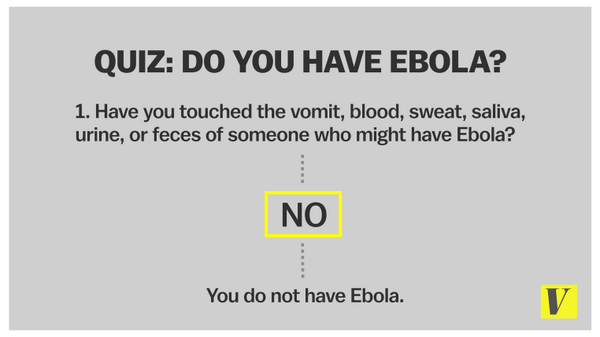 Long time readers know that I started this blog in response to the ridiculous, over-the-top, pre-accomplishments hagiography of Barack Obama during the primaries in 2008. The man could do no wrong. Don’t even get me started, I’ve written War and Peace over that primary season. And what did we learn from his eight years in the White House? We learned that the media and Obama’s fan base will do almost anything to obscure his flaws. That was fatal for us because if we weren’t allowed to be critical, we couldn’t correct when he was on the wrong track or hold him accountable for poor policy making.
Long time readers know that I started this blog in response to the ridiculous, over-the-top, pre-accomplishments hagiography of Barack Obama during the primaries in 2008. The man could do no wrong. Don’t even get me started, I’ve written War and Peace over that primary season. And what did we learn from his eight years in the White House? We learned that the media and Obama’s fan base will do almost anything to obscure his flaws. That was fatal for us because if we weren’t allowed to be critical, we couldn’t correct when he was on the wrong track or hold him accountable for poor policy making.
For that early assessment of the media and his mysterious well-heeled fanbase propping him up in 2008, many of us were labeled “racists”. I hope that the left has learned a painful lesson from the last election about throwing that word around. Yes, there are racists. Real racism exists but it isn’t all about Barack Obama, who is a class based aspirational president and not John Lewis. But there many voters who were sick to death of having their perceptions invalidated by that cynical accusation. Unfortunately, some of them did not know when they were being played. We’re still trying to figure out what separated the casual Trump supporter from the lefty voter who simply didn’t like Obama but had no problem voting for Hillary. The Nate Silvers of the world who crunch their models can point to surface causes but I think the answer is buried in how labile we are to pressures to conform and adapt to consensus reality. We may need to find new descriptors for that model.
The purpose of this blog is to defy consensus reality. Commenters here feel safe to say what they think is really going on. The way we do this is by avoiding mental short cuts and slogans and buzz words. If you have a problem with out of control capitalism, calling a politician a “corporatist” is not going to cut it here. You need to say exactly what you mean, think it through, choose your words to convey their intent clearly.
Choosing carefully where we get our news and touchpoint with actual reality will also make a difference. Here are my tips for finding reality based news. Do with them what you will:
1.) Avoid any news source that provokes an immediate emotional response, especially if that response is fear or anger. People who are provoked to anger or fear do not make good decisions. It is difficult to reason with someone who is enraged. Don’t believe me? Think about the last time you tried to have a reasonable conversation with someone in a rage state.
2.) Avoid television news. This means ALL television and cable news programs. The combination of audio with visual cues is very powerful. It doesn’t matter which network you choose. Some are worse than others but they all do it. Just don’t watch it. Give it a week and you won’t miss it. Get to know your family again, take up the guitar, go for a walk. Make the TV a special thing where you binge watch Outlander and oogle Jamie Fraser in a kilt.
3.) If you need to get a quick news fix, try radio. Again, some radio is better than others. NPR used to be my go to. Now, I can hear the narratives built into the scripts. So, be careful with this. Again, if you find yourself becoming fearful or angry, stop listening.
4.) Find reliable sources in print journalism. Even this is getting increasingly difficult to do. There are some sources that are more reliable than others. I read a wide variety of sources like the NYTimes, Washington Post, ProPublica, The New Yorker, The Atlantic, The Conversation, The Guardian. If it seems like my choices are left leaning, that’s because truth does seem to have a strong liberal bias. That being said, the NYTimes and Washington Post have been lax with their standards in the last decade or so. I wouldn’t necessarily call either paper “left”. But occasionally, you can find articles that are less biased and better investigated. Also, read foreign news sources, like Der Spiegel for an outsider’s perspective. Google translate is amazing.
5.) Try alternate sources for news. I like podcasts. In 2016, we saw a bumper crop of good podcasts, some more analytical than others. Among my favorites, The Weeds from Vox, Five Thirty Eight from Nate Silver and his data modelers, and my current favorite, TrumpCast with Jacob Weisberg from Slate.
6.) Apply the Cindy Lu Who test. If you see a green imp in a Santa suit stealing your Christmas Tree and he tells you a story about taking it back to his workshop to fix a broken light, ask yourself why he couldn’t have come by during the day when your parents were awake. In general, the simplest explanation is the most likely. Conspiracies are rare. Most people are motivated by simple things like greed, revenge, arrogance. (I’m looking at you Rudy Giuliani) Those deadly sins can lead them to do a number of unethical things. But if your favorite news reader starts spewing an improbable scenario, and if that scenario makes you mad before you can figure out if it’s true or not, apply the Cindy Lu Who test and start asking questions.
7.) Read non-fiction. Read history, science, paleobotany, it doesn’t much matter. Find a well reviewed non-fiction book and learn from it. It’s especially good for learning to analyze and that can be applied to the here and now. Some of my favorite non-fiction include, A Distant Mirror by Barbara Tuchman, Guns, Germs and Steel by Jared Diamond, anything by Michael Lewis, In the Garden of Beasts by Eric Larsen, SPQR- A History of Ancient Rome by Mary Beard.
Lastly, check out this diagram of where news sources fall on the left-right, reliable-unreliable spectrum. If you are confused and distrustful about what and who to believe, stick to the top layer in the middle. Even the Wall Street Journal, as crazy as its opinion pages are, has a very good news bureau and high quality reporting.

We’re about to be bombarded by a high volume of issues and controversies all at once. We will be disoriented. We may have a hard time keeping track of what is going on. Many people who have studied authoritarian regimes say that citizens quickly learn to accept the unacceptable so you are encouraged to write down what your beliefs and principles are right now and check them periodically to see if you are slipping.
Hold hands, stick together, look out for one another.
SWAK!
Filed under: General | Tagged: Cindy Lu Who, consensus reality, Five Thirty Eight, Jamie Fraser in a kilt, Outlander, ProPublica, The Atlantic, The Conversation, the New Yorker, The Weeds, TrumpCast, Vox | 29 Comments »






 STrumpet sounds so quaint. I get the image of floozies in bodices where their cups runneth over. There’s a whiff of something overripe about them. They don’t necessarily have hearts of gold. They’re looking out for themselves. Nothing so tasteful as Vermeer’s Procuress but the boob grabbing seems to be a thing.
STrumpet sounds so quaint. I get the image of floozies in bodices where their cups runneth over. There’s a whiff of something overripe about them. They don’t necessarily have hearts of gold. They’re looking out for themselves. Nothing so tasteful as Vermeer’s Procuress but the boob grabbing seems to be a thing.

